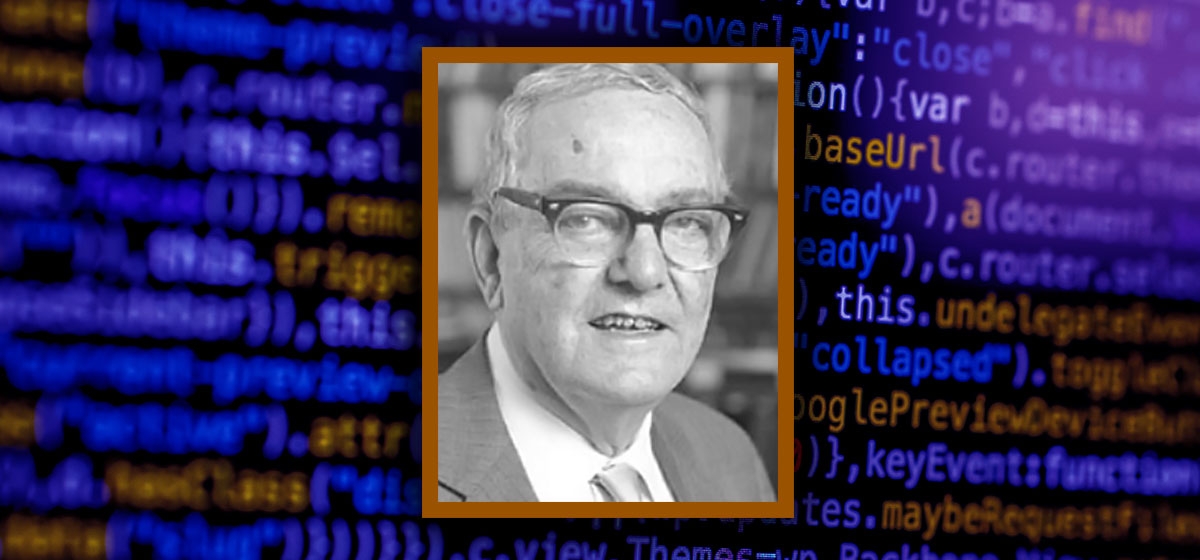
Herbert Simon, a name that resonates with greatness in the world of academia and intellectual pursuits. This remarkable individual was not only a renowned economist and political scientist, but also a computer science pioneer, psychologist, and Nobel laureate. He left an indelible mark on multiple fields, revolutionizing our understanding of decision-making processes and shaping the way we approach complex problems.
In this article, we delve into the fascinating life of Herbert Simon and uncover 8 mind-blowing facts about his achievements and contributions. Prepare to be amazed as we explore his diverse range of accomplishments, from his groundbreaking work on artificial intelligence to his unparalleled insights into human behavior. Whether you’re a fan of economics, computer science, psychology, or simply intrigued by intellectual giants, this article is sure to captivate your interest.
Key Takeaways:
- Herbert Simon was a big deal! He won a Nobel Prize in Economics and made major contributions to cognitive psychology, artificial intelligence, and organizational behavior. His work still influences many fields today.
- Simon was a brainiac! He came up with the information processing theory, believed in AI, and wrote a famous book on organizational behavior. His ideas about decision-making and human behavior are still super important.
Nobel Prize in Economics
Herbert Simon was awarded the Nobel Prize in Economics in 1978 for his pioneering research in the field of decision-making processes within economic organizations.
Cognitive Psychology
Simon made significant contributions to the field of cognitive psychology, particularly in the areas of problem-solving and human decision-making. His work laid the foundation for understanding the role of bounded rationality in decision-making.
Information Processing Theory
Simon developed the information processing theory, which posits that individuals gather information from their environment, process it internally, and use it to make decisions. This theory has had a profound impact on the field of cognitive science.
Artificial Intelligence
Simon was an early proponent of artificial intelligence (AI) and contributed to the development of AI systems. He believed that human intelligence could be understood and replicated through the use of computer algorithms.
Organizational Behavior
Simon’s research on organizational behavior helped shape the field by emphasizing the importance of information processing, decision-making, and the role of individuals within organizations. His work has had a lasting impact on management theory and practice.
Administrative Behavior
Simon’s book, “Administrative Behavior,” published in 1947, is considered a seminal work in the field of organizational studies. It introduced the concept of “satisficing,” which suggests that decision-makers often choose options that are satisfactory rather than optimal.
Multidisciplinary Approach
Simon’s work was characterized by a multidisciplinary approach, drawing from economics, psychology, computer science, and management. He believed that solving complex problems necessitated an interdisciplinary perspective.
Legacy and Influence
Herbert Simon’s groundbreaking work continues to be influential in various fields, including economics, psychology, management, and computer science. His ideas have shaped our understanding of decision-making, cognition, and the complexities of human behavior.
Conclusion
Herbert Simon was undoubtedly a remarkable figure in the field of cognitive psychology and artificial intelligence. His groundbreaking research and ingenious theories revolutionized our understanding of decision making and problem-solving processes. Through his interdisciplinary approach, Simon left an indelible mark on various domains, including economics, computer science, and management. His passion for understanding human behavior and developing computational models to simulate it paved the way for future generations of researchers and innovators. Herbert Simon’s legacy will continue to inspire and shape the fields he contributed to, reminding us of the limitless possibilities when intelligence and creativity intersect.
FAQs
Q: What were Herbert Simon’s major contributions to cognitive psychology?
A: Herbert Simon made significant contributions to the field of cognitive psychology by introducing the concept of bounded rationality and developing the cognitive decision-making model. He also pioneered research on problem-solving and information processing, establishing key ideas that continue to influence cognitive science.
Q: How did Herbert Simon’s work impact artificial intelligence?
A: Herbert Simon’s work had a profound impact on artificial intelligence. He developed the concept of heuristic search algorithms and created computer programs that could simulate human decision-making processes. Simon’s AI research played a vital role in advancing the field and laid the foundation for future developments in machine learning and cognitive systems.
Q: Was Herbert Simon recognized for his contributions?
A: Absolutely! Herbert Simon received numerous accolades throughout his career, including the Nobel Prize in Economic Sciences in 1978. He was also elected as the president of the American Psychological Association and the American Association for the Advancement of Science.
Q: How did Herbert Simon’s interdisciplinary approach impact other fields?
A: Herbert Simon’s interdisciplinary approach greatly influenced other fields such as economics, computer science, and management. His integration of knowledge from different domains fostered innovative thinking and problem-solving techniques, leading to advancements in fields beyond cognitive psychology.
Q: What is Herbert Simon’s lasting legacy?
A: Herbert Simon’s lasting legacy lies in his groundbreaking research, visionary theories, and interdisciplinary approach. His contributions continue to shape our understanding of decision-making processes, cognitive science, and artificial intelligence. Simon’s work serves as an inspiration to future generations of researchers and stands as a testament to the power of innovative thinking and cross-disciplinary collaboration.
If you're fascinated by Herbert Simon's groundbreaking work, why not explore more captivating insights? Uncover enigmatic facts about Dr. William D. Nordhaus, another Nobel Prize in Economics recipient who revolutionized economic thinking. Dive into the intricacies of cognitive psychology with Daniel Kahneman's "Thinking, Fast and Slow," a book that will change your perspective on decision-making. For those intrigued by artificial intelligence, embark on a cinematic journey with "39 Facts About The Movie A.I.: Artificial Intelligence," a film that pushes boundaries and sparks imagination.
Was this page helpful?
Our commitment to delivering trustworthy and engaging content is at the heart of what we do. Each fact on our site is contributed by real users like you, bringing a wealth of diverse insights and information. To ensure the highest standards of accuracy and reliability, our dedicated editors meticulously review each submission. This process guarantees that the facts we share are not only fascinating but also credible. Trust in our commitment to quality and authenticity as you explore and learn with us.


